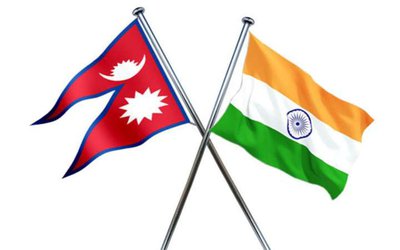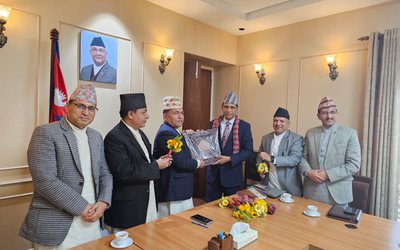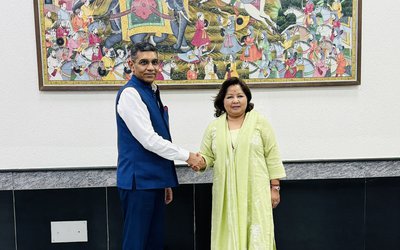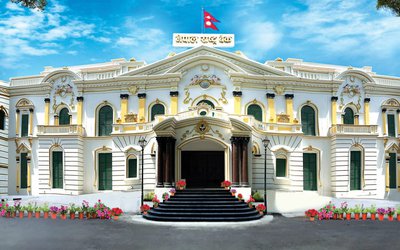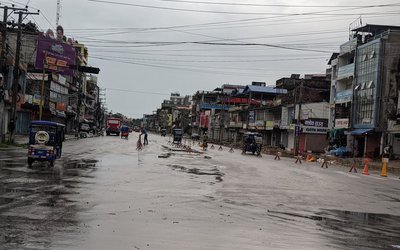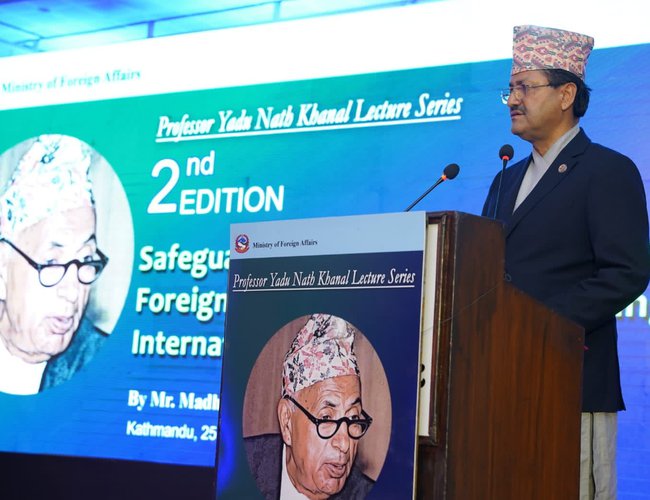
As we just heard from Ambassador Madhu Raman Acharya, this year’s lecture focused on the theme of safeguarding national interests and the policy choices that we have in contemporary international environment.
As a seasoned practitioner of international relations and diplomacy and an author in the field, Ambassador Madhu Raman Acharya made in-depth coverage of the topic and suggested some practical ways on how we work in today’s complexities.
Safeguarding national interests is paramount for every country. This is something which cannot be compromised under any circumstances. The Constitution of Nepal has broadly defined our national interests. Foreign policy is the tool in pursuit of these interests.
In our part of the world, we grew up listening to the stories from the Ramayan, the Mahabharat, teachings of the Buddha and the tenets of Chanakya niti. These treasures are full of knowledge, wisdom and insights on statecraft and diplomacy. The worldview presented therein is a fine blending of values and pragmatism.
Thanks to the wisdom, vision and pragmatism of our predecessors, Nepal maintained its independence throughout the history and continued its engagement with the wider world. Late Yadu Nath Khanalwasone such towering figure unmatched in the magnitude of wisdom and the level of judgment.
Today, we are equally aware that our ability to influence international politics through military and economic means is not viable. Diplomacy, therefore, continues to remain the only available tool at our disposal. This was the crux of Ambassador Acharya’s luminous speech.
Nepal is situated between two big, powerful and fast growing economies of the world, India and China. We seek to maintain friendly relations with both of them, based on the principles of sovereign equality, mutual respect, cooperation and mutual benefit.We seek to prosper by being better connected to both sides of our neighbourhood--in economic terms.
We also value our relations with our extended neighbours, development partners, the destination countries for our migrant workers, as well as all other countries of the world.
Our foreign policy is based on non-alignment, panchsheel and the principles enshrined in the UN Charter. Non-alignment should not be interpreted in its narrow terms and understood as indifference. We carry out a close and careful assessment of the developments taking place in the world and respond to themconsidering their merits.
Our efforts are directed towards enhancing the dignity of the nation by expanding our role in the international arena. Through membership in the ECOSOC, Human Rights Council, Peace Building Commissionand the Chair of the LDC Coordination Bureau in the United Nations, Nepal is playing an active role in the global forums.
The world is witnessing rapid change. This has made the formulation and conduct of foreign policy more dynamic and complex. Identifying the global trends which may shape the global geo-political, economic and social systems in the coming decades is a strong imperative. We need to analyze and understand these changes, assess their implications on us and fine-tune our response keeping national interest and welfare of the people at the centre.
Furthermore, foreign policy today has to deal with challenges, such as climate change; financial, food and energy crises; pandemic; mass evacuation and repatriation of population; transnational crimes; cyber security; terrorism and so forth.Therefore, capacity development of our human resources is crucial to be able to cope with the challenges of the 21st century.
A large segment of our population is outside the country. Our focus is on protection and promotion of their rights and welfare abroad as well as keeping them connected to homeland.
With the settlement of the political process at home, our priority has now shifted to attaining economic development and prosperity for our people. Our aim is to achieve economic progress, including by pursuit of effective economic diplomacy.We are focused on expanding partnerships and international cooperation in priority areas. Economic agenda has received due importance and priority in our engagements with immediate neighbours and friendly countries as evident in the Prime Minister’s recent visit to India.
National consensus is essential for the success of foreign policy and its credibility. All political parties need to be on the same page when it comes to the fundamentals of our external engagement. Such consensus will bring clarity of our goals and consistency in our priorities. Therefore, during my tenure as Foreign Minister, my sincere efforts will be towards this end.
Before I conclude, I would like to extend special thanks to Ambassador Acharya for hishighly engaging, comprehensive and enlightening presentation. I would also like to thank the participants for their comments andthoughts during the Q and A session. Let me also extend sincere thanks to Professor Jaya Raj Acharya for his contribution as an expert member in the SteeringCommittee that is mandated to guide the process of this lecture series. Foreign Secretary and other colleagues in the Ministry who have worked hard to bring this Lecture to you also deserve my compliment.
As we leave this hall today, I remain optimistic that there is plenty to reflect upon what is best for our country. We look forward to seeing you again in 2024 with yet another insightful Lecture on a topical theme.
I am confident that YNK Lectures will continue to serve as an important platform forsharing ideas, stimulating thoughts and broadening our understanding on the evolving issues of our time.
N.P. Saud is a foreign minister of Nepal. Excerpts of remarks delivered at the Second Edition of Prof. Yadu Nath Khanal Lecture Series.

